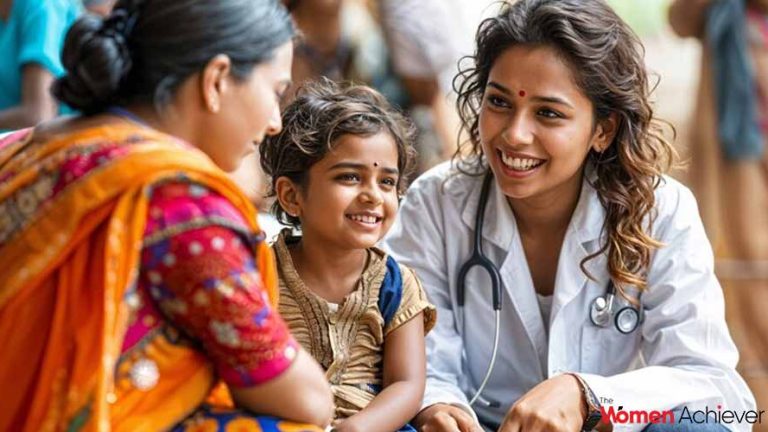The Transformative Impact of Women-Centric Welfare Schemes in Rural India
In rural India, women-focused welfare programs have significantly improved the lives of millions of women by giving them more social, economic, and political clout. The Indian government and various NGOs have started focused programs in recent decades to address the particular difficulties that women in rural areas confront, such as gender inequity, poverty, lack of education, and restricted access to healthcare. These initiatives partly shape the future of women in rural India.
Yojana Pradhan Mantri Ujjwala (PMUY)
PMUY, one of the most effective programs, attempts to give women from Below Poverty Line (BPL) households access to LPG connections. This program has greatly decreased the use of conventional fuels, such as firewood, which are hazardous to human health and the environment. PMUY’s promotion of clean cooking fuel has reduced indoor air pollution, enhanced women’s health, and freed up time that may be used for income-generating or educational pursuits.
The National Rural Livelihoods Mission (NRLM) and Self-Help Groups (SHGs) have been instrumental in increasing women’s financial independence in rural India. These organizations give women access to training and microloans, enabling them to launch small enterprises, raise their incomes, and support their families. SHGs’ combined strength has also helped rural women address societal concerns like gender discrimination by fostering a feeling of community and solidarity.
Beti Bachao Beti Padhao (BBBP)
By encouraging girls’ education and survival, the Beti Bachao Beti Padhao program seeks to elevate their standing in society. The program has been effective in increasing awareness of the value of educating girls and combating discrimination based on gender. States like Haryana, where the skewed sex ratio has improved as a consequence of coordinated efforts under BBBP, have experienced positive effects from this initiative.
The Mahatma Gandhi National Rural Employment Guarantee Act (MGNREGA)
This program prioritizes women’s involvement and provides rural households with a 100-day pay employment guarantee. The program has played a significant role in expanding women’s career options and, consequently, their financial independence. Since women make up about half of the workforce under MGNREGA, the program has decreased poverty and given rural women more economic power.
The goal of the Janani Suraksha Yojana (JSY) is to encourage institutional deliveries in order to lower mother and newborn mortality. The program has improved maternal healthcare in rural India by offering financial incentives to women who give birth in hospitals. Better health outcomes for mothers and babies have resulted from the substantial decrease in delivery problems brought about by the availability of safe birthing services.
Economic and Social Empowerment
In rural India, women’s social and economic standing has improved as a result of women-centric welfare programs. Rural women’s quality of life has improved as a result of increased access to healthcare, education, and financial freedom. With more women taking part in decision-making inside their homes and communities, these programs are assisting in the dismantling of traditional gender roles.
Difficulties and the Future Even though these programs have greatly benefited society, there are still issues. The full potential of these initiatives is occasionally hampered by strongly ingrained gender conventions, poor infrastructure, and ignorance about available schemes. More community involvement, better implementation, and persistent efforts to remove gender prejudices are required to further increase the efficacy of women-centric programs.
Conclusion
In rural India, women-focused social programs have laid the groundwork for long-lasting transformation. These initiatives are enabling women to live more independent and satisfying lives by emphasizing financial freedom, health, and education. As long as these programs continue to help rural women, they will not only change their personal lives but also help their communities grow as a whole.





Add comment